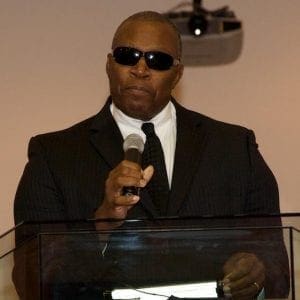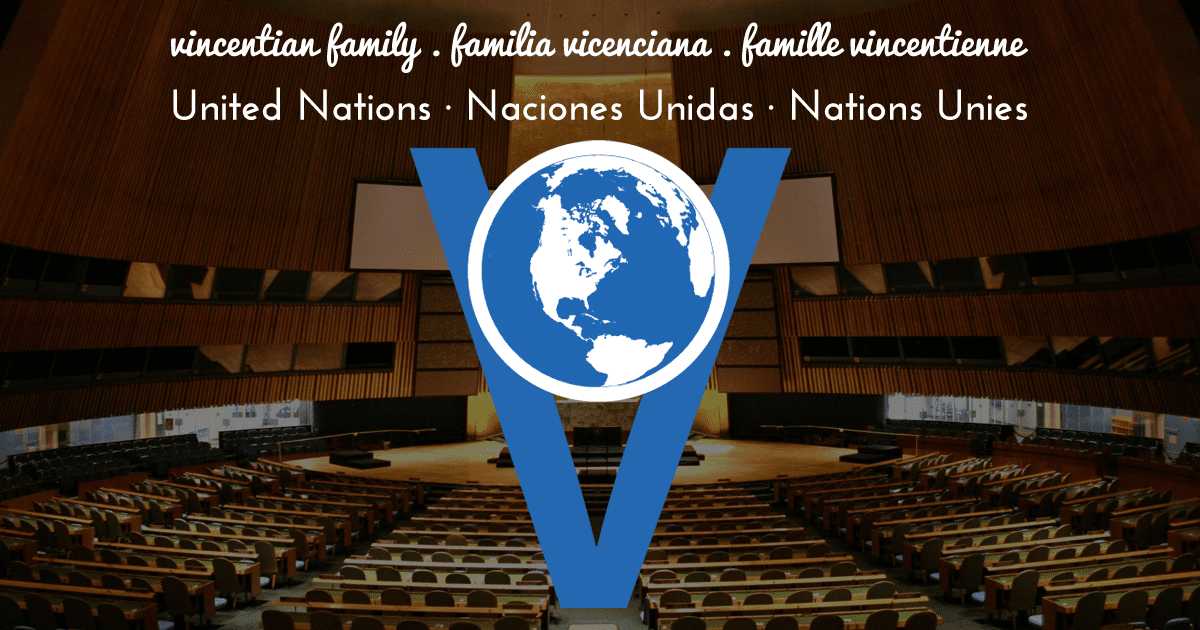A Call for Accessibility and Attitude Changes
A Call for Accessibility and Attitude Changes As International Day of Persons With Disabilities Approaches
It seems difficult to find quotes by our founders with regard to persons with disabilities. Perhaps that’s affirmation that our founders focused not on labels, but more importantly on the dignity within each person…
Sparsh Shah belts out “I’m not afraid” on his new album, “Tribute to Eminem.” He had a UN conference room full of NGOs and diplomats clapping to “Heal the World,” October 18, rousing support for the International Day for The Eradication of Poverty. No small accomplishments for a 13-year-old!
Shah was a speaker recently at an NGO event entitled, “Leave No One Behind Dialogue Series” in New York. Ambassador W. Aubrey Webson, from Antigua and Barbuda, joined Shah in advocating for the rights of persons with disabilities.
Sparsh was born with osteogenesis imperfecta, which renders his bones very fragile. He has experienced over 130 broken bones in his lifetime. (His parents at one point were asked to sign a document to remove him from life support but, fortunately, chose not to). Ambassador Webson experiences blindness. Neither wishes to be defined by their physical impairments.
“We never want anything more than love and acceptance,” said Shah, a prodigy who is creatively financing college through album sales. “Our spirits are strong.” This is evident by his diligent advocacy for persons with disabilities.
CONVENTION ON THE RIGHTS OF PERSONS WITH DISABILITIES
December 13 marks the Tenth Anniversary of the UN’s Adoption of the Convention on the Rights of Persons with Disabilities. As of October, 2016, the Convention featured 168 parties and 160 signatories. (The U.S. has signed, but not ratified it). The Convention relates to rights involving accessibility, including that to information technology; to live independently and be included in the community; personal mobility; habilitation and rehabilitation; and to participate in political and public life, as well as cultural life, recreation, and sport.
INTERNATIONAL DAY OF PERSONS WITH DISABILITIES
 The United Nations will celebrate International Day of Persons with Disabilities on December 3. According to the World Bank, one billion people, or 15% of the world’s population experience some sort of disability. One-fifth of the estimated global total, or between 110 million and 190 million people, experience significant disabilities.
The United Nations will celebrate International Day of Persons with Disabilities on December 3. According to the World Bank, one billion people, or 15% of the world’s population experience some sort of disability. One-fifth of the estimated global total, or between 110 million and 190 million people, experience significant disabilities.
ACCESSIBILITY IS KEY
Shah mentioned famous persons who, like himself, are achievers. Among them were Stevie Wonder, Helen Keller, Christopher Reeve, and Beethoven. One might add persons such as physicist Stephen Hawking, former Ecuadorian Vice President Lenin Moreno, or John Nash from the film, ‘My Beautiful Mind.’
Shah did, however, call for greater accessibility. He noted that travel requires intense planning for accessible planes, hotels, and cars. “It’s not fair,” he added. His elementary school is ten miles away, he pointed out, because the school two blocks away from his home is not accessible. One can imagine that trains and subways are a whole other challenge.
“Why can’t we have accessibility where it is most needed?,” he asked.
ATTITUDE CHANGES IN ORDER
Shah further pointed out the importance of attitude changes. “Some societies,” he said, “have not accepted persons with disabilities. They think they are a burden to society. Even a family gets disabled.” Shah noted that there have been times when other children were not allowed to come and play with him, indicating a fear related to his physical impairment. Both he and his mother spoke of the importance of schools educating for inclusiveness.
Yet Shah is well humored. “You laugh at us because we’re different. We laugh at you because you’re all the same!”
DEFINITIONS CHANGING

“You should not be judged on your disability but on your ability. I don’t want to be known as the Ambassador with a disability.” –H.E. W. Aubrey Webson
Ambassador Webson spoke of transitions in the definition of “disability,” which has moved away from a medical model, which defines persons according to a condition, environment, or barriers. The barriers inhibit functionality, he said, and define people by a condition as opposed to who they are.
“How often do we say the ‘blind child’ or the ‘deaf person’ rather than ‘the person?,’” he asked.
The Convention on the Rights of Persons with Disabilities, he said, has evolved to one which puts people, rather than impairments, first.
Inclusion is a philosophy, noted the Ambassador. Disabled persons were locked in the past in social welfare models which focused on telling disabled persons they were different. A drastic change occurred in the 1970s, with greater discussion of human rights. The whole concept shifted in the 1980s and 1990, Ambassador Webson explained. “There was the Decade of Persons with Disabilities and they began to find activism on human rights,” he said. “A slogan would have been ‘Nothing for us without us!’”
“You should not be judged on your disability but on your ability,” said Ambassador Webson. “I don’t want to be known as the Ambassador with a disability.”
Ambassador Webson spoke of how cultures play a great role in defining how others respond to something or someone. For example, when he used to coach soccer, the community adapted to and accepted him and his blindness. When the team visited other communities to compete, however, people would make nasty comments, but the boys would respond in his defense. “Attitudes must change,” he said.
Sustainable Development Goals Can Lead to New Pathways
Ambassador Webson further talked of another paradigm shift. “Many of us politicians are politically correct in speaking to persons with disabilities. We have to move beyond political correctness to truly open doors to persons with disabilities in a real way.
“The 2030 Agenda (17 Sustainable Development Goals, or SDGs) cracked that door,” he said. “Our job is to see how to open the door now that it is cracked.”
The Goals include seven targets which explicitly refer to persons with disabilities and six further targets on persons in vulnerable situations, which include persons with disabilities. Global efforts in these areas could make a huge difference for persons with disabilities.
SDG 4.5 calls for equal access to all levels of education and vocational training for the vulnerable, including persons
with disabilities, indigenous peoples and children in vulnerable situations. SDG 8.5 refers to achieving full and productive employment and decent work for all women and men, including for young people and persons with disabilities, SDG 10.2 speaks of empowering and promoting the social, economic and political inclusion of all, irrespective of age, sex, disability, race, ethnicity, origin, religion or economic or other status. And SDG 11.2 focuses on providing access to safe, affordable, accessible and sustainable transport systems for all, improving road safety, notably by expanding public transport, with special attention to the needs of those in vulnerable situations, women, children, persons with disabilities and older persons.
“Not leaving persons with disabilities behind need not just be a thought, but a practice,” said Webson.
Webson hopes the world will pay greater attention to women and girls with disabilities as well as to all persons with disabilities in conflict situations. Over 20% of refugee populations have disabilities, he noted. Often those who do not flee are older persons and persons with disabilities. “They ought not be left behind,” he said.

Tags: United Nations







0 Comments